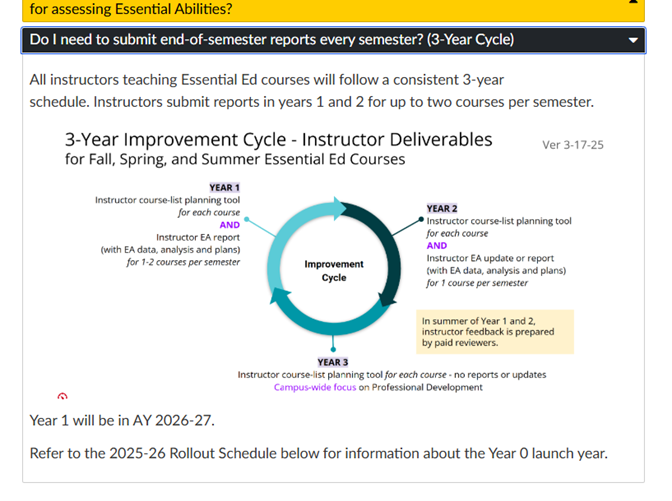What: Michigan Tech Academic Minor Fair
When: Wednesday, January 28, 2026, 3:30pm – 5 pm
Where: East Reading Room – Van Pelt Library on Campus
The National Association of Colleges and Employers (NACE) surveyed employers in 2025 to inquire what talents they were looking for in new graduates. The top 10 skills employers are searching for included:
- Problem-solving skills (88,3%)
- Ability to work in a team (81.0%)
- Communication skills (written) (77.1%)
- Initiative (73.7%)
- Strong work ethic (73.2%)
- Technical skills (73.2%)
- Communication skills (verbal) (69.3%)
- Flexibility/adaptability ((67.0%)
- Analytical/quantitative skills (67.0%)
- Detail-Oriented (65.9%)
Additional valued skills included: Interpersonal Skills, Computer Skills, Leadership, Entrepreneurial Skills, Creativity, and Strategic Planning Skills.
Employers noted they wanted to hear how prospective hires acquired these skills in their diverse coursework, projects, and experiences, sharing these stories through their resumes and in the follow up interviews. Employers stated this would provide recruiters evidence that the candidate had acquired and already utilized skills to do the job and excel at it.
In today’s competitive job market, employers are looking for flexible candidates who can bring diverse skills and knowledge to their role on the corporate/project teams. Completing an academic minor in addition to your major adds skills noted as employer desired above. A completed minor can end up enriching a student’s professional career and personal life. Minors give you a unique edge in your career/job search, by illustrating your unique combination of abilities that set you apart from other professionals in your field.
The Michigan Tech Minor Fair is an opportunity for students to explore curriculum that can help them identify their own personal interests, give you an “edge up” in your job search, while adding skills that will prepare you for a career that has yet to be created. We hope to see you on Wednesday, January 28 at 3:30 pm – 5 pm in the Van Pelt Library East Reading Room to help you explore your minor opportunities.
See the list of Minors that will be shared with you by the academic units that oversee them on the Essential Education Blog <https://blogs.mtu.edu/essential-ed/2026/01/add-a-minor-to-your-major-husky-minor-fair-save-the-date/> . For academic units still wanting to participate in the Minors Fair, contact Steve Patchin at shpatchi@mtu.edu.
Come learn about Minors that could add to your Major at the Michigan Tech Minors Fair:
- *AI Ethics (HU)
- Communication Studies (HU)
- *Diversity Studies (HU)
- Ethics & Philosophy (HU)
- *Global Cultures (HU)
- German (HU)
- German International (HU)
- Journalism (HU)
- Media Production (HU)
- Spanish (HU)
- Spanish International (HU)
- Writing (HU)
- American Studies (SS)
- Global Community (SS)
- Development Partnerships (SS)
- Global Studies (SS)
- Law and Society (SS)
- Public History (SS)
- *Public Policy and Law (SS)
- Social and Behavioral Studies (SS)
- *Sustainability Studies (SS)
- Applied Geophysics (GMES)
- Earth Sciences (GMES)
- Geological Engineering (GMES)
- Mining (GMES)
- Systems Engineering (Eng Fundamentals)
- Cyber Security (Applied Computing)
- Data Acquisition (Applied Computing)
- Industrial Controls (Applied Computing)
- Biomedical Engineering (Biomed Eng)
- Biomaterials Engineering (Biomed Eng)
- Medical Devices and Instrumentation (Biomed Eng)
- Tissue and STEM Cell Engineering (Biomed Eng)
- Public Health (KIP)
- *Population Health (KIP)
- Coaching (KIP)
- Sustainable Biomaterials (CFRES)
- Ecology (CFRES)
- Plant Biotechnology (CFRES)
- Plant Sciences (CFRES)
- Computer Science (College of Computing)
- Mathematics (Math)
- Statistics (Math)
- Psychology (PHF)
- *Human Centered Design (PHF)
- *Sneak peek at Individual Health and Wellness (PHF)
- Mineral Processing (Chem Eng)
- Polymer Science and Engineering (Chem Eng)
- Alternative Energy Technology (Chem Eng)
- Bioprocess Engineering (Chem Eng)
- Ecological Engineering (Civil, Environ, Geospatial Eng)
- Construction Management (Civil, Environ, Geospatial Eng)
- Surveying (Civil, Environ, Geospatial Eng)
- Railroad Engineering (Civil, Environ, Geospatial Eng)
- Municipal Engineering (Civil, Environ, Geospatial Eng)
- Water Resource Recovery Technology (Civil, Environ, Geospatial Eng)
- Aerospace Engineering (MAE)
- Manufacturing (MAE)
- Business (CoB)
- Business IT Solutions (CoB)
- Construction Management (CoB)
- Economics (CoB)
- *Economics and Society (CoB)
- *Entrepreneurship (CoB)
- Entrepreneurship, Technology, and Innovation (CoB)
- FinTech (CoB)
- Global Business (CoB)
- Art (VPA)
- *Creativity and Expression (VPA)
- Jazz Studies (VPA)
- Music (VPA)
- Music Composition (VPA)
- Music Performance (VPA)
- Sound (VAP)
- Theatre Arts (VPA)
- Theatre Performance (VPA)
- Technical Theatre (VPA)
- Chemistry (Chemistry)
- Medicinal Chemistry (Chemistry)
- Electrical Engineering (ECE)
Key for Departments:
- Chem Eng – Chemical Engineering
- PHF – Psychology, and Human-Factors
- Math – Mathematics
- CFRES – College of Forest Resources and Environmental Science
- MAE – Mechanical and Aerospace Engineering
- CoB – College of Business
- VPA – Visual and Performing Arts
- * Michigan Tech Essential Education Minors ation Minors
